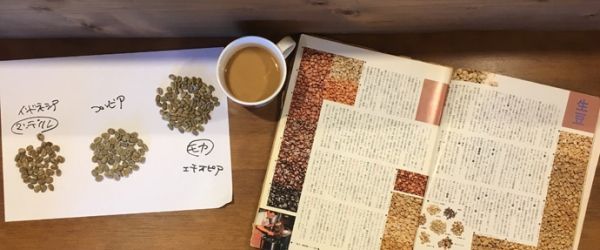
She doesn't drink it, but coffee has fueled her first term in Japan
As the end of college approached, Karen Johnson asked herself the question that nearly every graduate asks: What am I going to do with my life?
She had an amazing job opportunity on the table, but it fulfilled only two of her four passions: Japan, youth ministry, camping, and missions.
“I could have been the ministry director at a camp in the States. It offered housing, insurance, and good pay,” she said. “It couldn’t have been more perfect. But I didn’t have peace about it.”
So Karen turned to Google. She searched for “summer camps in Japan,” which led her to the Okutama Bible Chalet opportunity on SEND’s web site.
That was it! Karen applied to be a missionary with SEND, raised her support, and moved to Tokyo, where she immersed herself in learning Japanese.
A highly relational person, she soon found that sitting in her quiet apartment hitting the books didn’t suit her well.
“I thought, ‘I can afford to go to a coffee shop once a week and study and build relationships,’” she said. “Every Monday, I would go study at this coffee shop for 3-4 hours. The owner, Roan-san, started to recognize me, and he was so encouraging and kind. I could ask him questions about my homework, about Japanese culture and life.”
And that’s how this non-coffee-drinker from a small town in the States ended up volunteering once a week at a Japanese coffee shop.
“It had always been a bit of a dream of mine to work at a coffee shop, but in my small hometown, we don’t even have a Starbucks,” she said. “Here I am, doing this in a whole other language. I can do everything except roast the beans!”

This unexpected role at Roan-san’s coffee shop has helped Karen adjust to Japan in at least three ways:
- Linguistically: Karen says her confidence in Japanese and her ability to speak have increased as she’s taken orders and chatted with customers. She’s gained valuable experience in using nuances of the language, like the honorifics that play a crucial role in properly addressing Japanese people. And, of course, she can talk very knowledgably about coffee. “Some of the words I don’t even know in English,” she says.
- Culturally: Roan-san, the owner of the coffee shop, has taught Karen about everything from how to give gifts in Japan to how to introduce new people to others. When illness kept her from coming in to work, he brought her the kinds of food you offer sick people in Japan. (Not chicken soup; rather, strawberries, oranges, yogurt drink, and mochi.) “I can ask him questions about pretty much anything,” Karen said. “He’s kind of like my Japanese dad.”
- Spiritually: Karen’s weekly presence at the coffee shop means Roan-san knows her well. “He knows I’m a missionary, so we can discuss the Bible. We discuss the meaning of words,” Karen said. “One day, he asked, ‘Why are you always so genki , which means healthy, energetic, and cheerful. We had a great discussion as I explained that I have this great joy in Jesus that makes me genki.”
Karen Johnson still doesn’t like coffee. But her time at Roan-san’s coffee shop has prepared her well to share the love of Christ with Japanese youth—she just hopes it’s over a cup of tea.
The path to missions can feel overwhelming! Our experienced mission coaches will walk alongside you every step of the way.

• Find out how you can become a SEND missionary.
• Explore where and how you can serve with SEND.
• Subscribe to Explore , our free monthly newsletter full of inspiration, ideas, and encouragement for people interested in becoming cross-cultural missionaries.
Additional Posts




